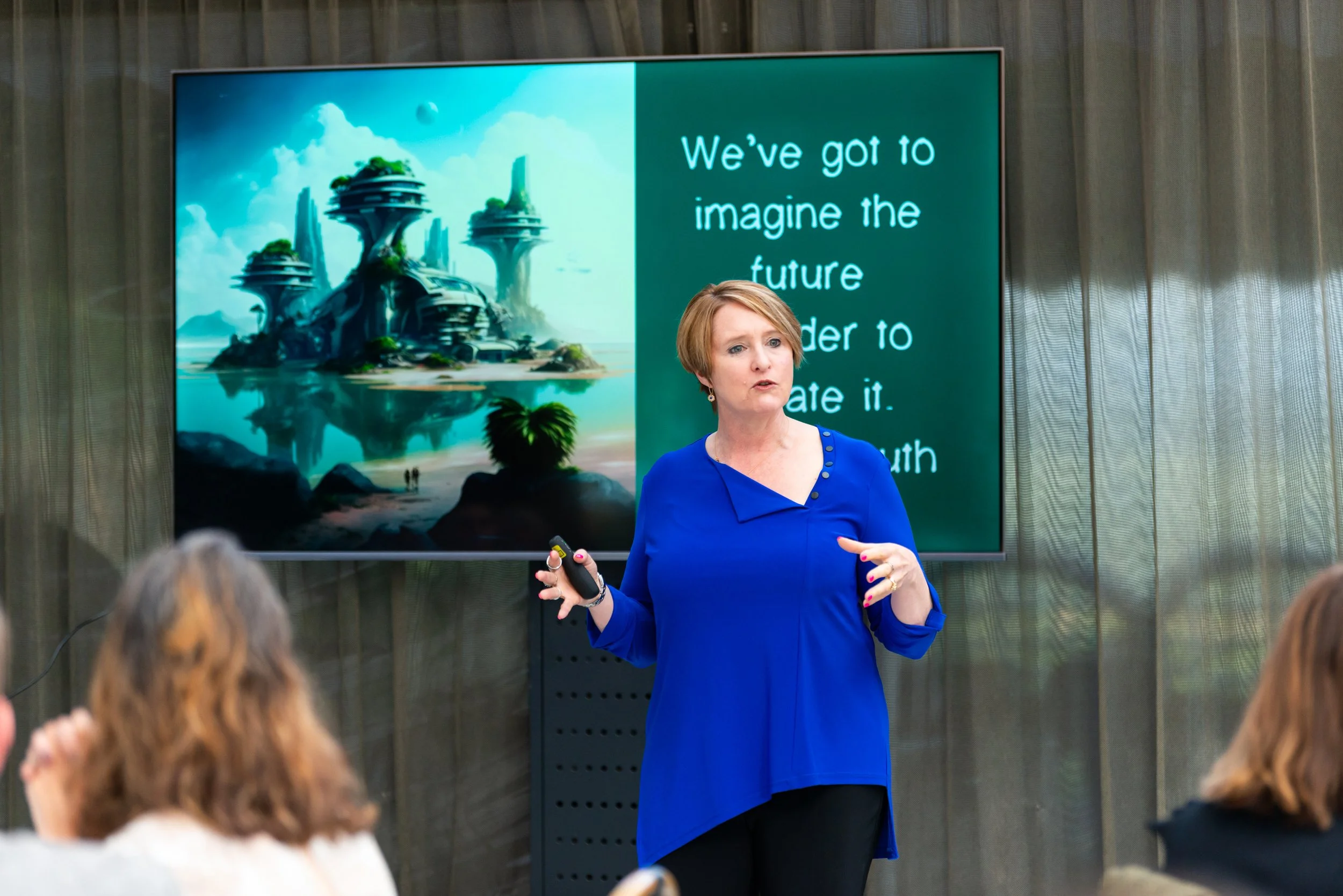In podcast interviews, I often get asked, “where did you get the idea for the book?
It doesn’t pop out fully formed, that’s for sure.
It usually comes from a niggle of some sort.
I explore what my brain is chewing on
In my non-fiction work, I find myself obsessing with a concept or a problem. Right now, as it has been for several years, it’s the use of power in leadership. I believe we need to re-make our relationship to power in order to collaborate better. That’s what’s feeding my next book, Power Games.
In my fiction work, the genesis for a novel is sometimes from a scene that is playing out in my head. For the final book in the Gaia series, Olympus Dawn (coming in 2025) I know exactly how the book is going to end. The scene is vivid and just waiting to be written. Scenes in Olympus Rising and Olympus Bound also haunted me for months before I got around to writing them. In the case of my first book, The Olympus Project, the first appearance of Serena sat in my brain for ten years.
I wish I had started writing fiction earlier! I have since learned to heed those nudges and capture those scenes when they emerge. Not all scenes make it into the final book, though. The first version of Jonas was a far cry from the arrogant brash fellow he became in the first novel. And certainly miles from where he ends up in book 3.
That’s the easy part of the ideas: capturing the monkey tail that flies past. The harder work is building a cohesive argument (in the case of non-fiction) and a compelling story with good character arcs in the case of fiction.
2. From a niggle to a nugget: start with a question
From that first fledgling idea, something more needs to crystallise. Who is the book for? What’s its purpose? What are the themes?
For non-fiction, this is easy. I listen to my clients’ problems all day long, so I know what keeps them up at night. The work I do in my books is a direct answer to that. My next non-fiction book, Power Games, is a response to the heart-breaking stories of leaders struggling with back stabbing, bullying, office politics. Too many leaders have walked away traumatised from some sort of power play. The question I use to focus on a non-fiction book is, “what’s keeping my clients up at night?” Often this meshes with the niggle I have been obsessing over.
For fiction, it’s a slightly more convoluted process. My first novel, The Olympus Project, emerged from the question, “Could fiction be a more powerful way to engage people with leadership ideas?” That question blended with my work as a leadership futurist in imagining future worlds based on current trends and events, and the setting in a climate-ravaged world emerged.
3. From a nugget to a frame: connect the dots
The brain is an incredible pattern recognition machine and I like to put that to full use in my work. That means feeding my brain lots of input to sift through. I read a lot and widely. I watch lots of TV and movies, with a thirst for story. I listen to podcasts and audiobooks. I tune into conversations at the hairdresser’s, cafes, and on planes to get a sense of personalities, voice and dialogue. I notice people’s quirks to see what I can donate to a character: a friend who scrapes the nail polish off the back of her fingernails with her teeth, the man who snorts like a seal from chronic allergies, the woman who wipes her tears with a thumb and then licks it for the salty tang, the accountant who can’t help but finish your sentences, the lawyer who mouths what you’re saying, eyeing your lips as you speak.
With all this input, I start to make connections. New concepts emerge. Points are distilled. It’s usually at this point I need to get something out of my brain and onto paper. So I map it out. For both fiction and non-fiction the process is the same: I mindmap different ideas. Then I order and prioritise them.
For fiction, I map out character arcs, plot points, and pacing.
For non-fiction, I map out key concepts, sequence the ideas, stories, and case studies.
At some point I have to quit playing with ideas and start putting words on a page.
And then some word kind of voodoo happens and more ideas, more characters emerge.
I remember writing a line for Aryanna in Olympus Rising like this: “But first we need to see a man in the desert.” I had no idea who the man was or what they were going to do there, but I went with it and now I have one of my favourite characters to come out of the book, mercenary Felix Dubois. You’ll get to meet him when the book comes out.
Happy reading!
P.S. Want more book recommendations and writing/reading insights?
Zoë Routh is a leadership futurist, podcaster, and multiple award-winning author. She works with leaders and teams to explore what's coming and what it means for leadership of the future.
Zoë is an outdoor adventurist and enjoys telemark skiing, has run 6 marathons, is a one-time belly-dancer, has survived cancer, and loves hiking in the high country. She is married to a gorgeous Aussie and is a self-confessed dark chocolate addict.

